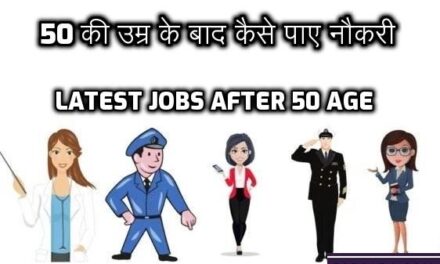Precarious Job? Study says you’ll die earlier in 2024
Poor salary, little to no job security, and no workers’ union to speak of. Does that sound like what you do? A study carried out in Sweden found that if you smoke, your odds of passing away at an early age are increased by 20–30%.
At the Karolinska Institutet in Stockholm, Sweden, where she works, Nuria Matilla Santander is an assistant professor in the department of occupational medicine.
She investigated, through the use of a research study, how the Swedish population’s precarious employment situation is related to the chance of death.
Precarious Job?
What do you believe to be the most important takeaway from your research, Nuria?
According to Nuria Matilla Santander, the risk of death drops by twenty percent [during six years] for individuals who transition from unstable employment to conventional employment, which is considered to be of better and higher quality. When they maintain a steady job for 12 years, there is a 30% reduction in the associated risk.
These are words that need to be defined. What exactly does it mean to have a precarious job?
A poor income is what we mean when we talk about precarious work. A level of financial security that is insufficient for you to lead a regular life or to maintain steady employment.
In this sense, being employed through an agency, for example, or being employed temporarily and not having access to your rights as a worker are both examples of inequitable employment arrangements.
In addition, the inability to take a sick day or visit a doctor when necessary, as well as the lack of protection afforded by labor unions and collective bargaining agreements.
And what exactly do you mean when you refer to “standard employment”?
Contrary to this is the practice of standard employment. You are able to lead a normal life and use your normal rights as a worker if you have a steady income from a working position.
If I were to leave a job where my security was uncertain and take one where my job security was more certain or standard, would that increase the likelihood that I would live longer?
That is consistent with the results of the research that we conducted in Sweden.
You begin your investigation of the data from 2005 all the way through 2016. You took a look at every single person in Sweden, right?
Specifically, one must be between the ages of 20 and 55 and meet a number of other requirements. But the requirement that they work in jobs with uncertain futures was by far the most crucial one.
And when these Swedish workers were able to transition from unstable jobs to more stable employment, they lived longer.
What methodology did you use for the analysis?
We contrast those individuals who transition from unstable to stable employment with those who do not make this transition.
Then we conduct a risk assessment, then we monitor their health for a total of 12 years, and finally, we determine who passed away first.
And then we see, oh yes, those individuals who do not make the transition to ordinary jobs, they pass away quicker and earlier than other people. Therefore, the potential for mortality is increased.
Have you determined how much sooner people die on average or the probability that someone will pass away at a younger age?
For this particular example, we did not record the exact ages, but we did measure the probability of passing away.
We can be certain, according to the procedures that we are utilizing, that it is because of the shift from having unstable employment to having conventional employment.
In addition, it is not the result of any other kinds of probabilities or factors, such as things that took place in their lives throughout that period.
I take it that you were unable to conclude the specific reasons why people pass away when they are in a hazardous employment situation.
To that point. That will get us to the next stage. There are three primary assumptions that we have. The first one is without material possessions.
Your precarious employment situation and your meager salary ensure that you will never be able to lead a regular life. Weekends and holidays are not days when you can count on being free to go out.
You are so financially strapped that you are unable to provide for your children. It is impossible to plan.
Stress is something that is detrimental to our health and raises the likelihood that we may get additional disorders.
Then, there is a second notion, which pertains to the task itself, in addition to the atmosphere of the workplace. Having a greater risk of getting hurt on the job as a direct result of the increased dangers of the job.
And there is yet another hypothesis, which we refer to as “the embodiment of precariousness.” You do not suffer from a disease that is brought on by a microbe; rather, you suffer from a sickness that is brought on by precarity.
After being put in such dangerous settings for such a long period, things start to get messed up.
This increases the likelihood that you engage in unhealthy lifestyle patterns, such as skipping meals, not having time to exercise, and not getting enough sleep.
In addition to that, all of these [cause] a significantly increased risk of developing other ailments.
What advice would you give us now that we know that persons who work in dangerous environments are more likely to pass away at an earlier age?
Should an individual who is now employed in a setting similar to the one you described immediately look for new employment? Or is there something that they can do at all?
We can’t ever place the blame on the worker. Better working conditions for employees should be the first step in addressing this issue, which businesses should take up.
Therefore, I prefer this message to be directed more toward the employers than it is toward the employees.
Please exercise caution when working with those items because they are hazardous to the health of the employees.
And labor unions play a significant part in this. We can see that moving from a circumstance in which you have no protection to one in which you have increased protection from a union reduces the likelihood that you will be harmed as a result of your work.
TET Ke Liye Yogyata Kya Honi Chahiye
This, too, is contingent on the social safety net provided by the government of the nation in which the workers are residing.
Now, we have completed our research in Sweden, which has a welfare system similar to that seen in the Nordic countries. I am unable to fathom how this might play out in other nations, particularly those with assistance systems that are less favorable to the working population.
How far off is it that the world is from being able to create jobs that won’t cut people’s lives short? Would something like that be impossible? Or is it not something that is able to be accomplished?
There is no such thing as an unattainable goal. The landscape of employment is continuously evolving.
This is something that is happening right now with the advancement of technology and the digitalization of the workplace.
There are a lot of hazardous jobs that machines could do. And then there are other types of work, such as freelancing or the kind of jobs that cannot be considered permanent employment; these types of jobs are eligible for a different set of safeguards.
Therefore, rather than having permanent employment, you may provide the workers with a lot of rights and a lot of social security protection, and this will safeguard them against a variety of different health problems that can be caused by labor. Doing so is both practicable and attainable.






